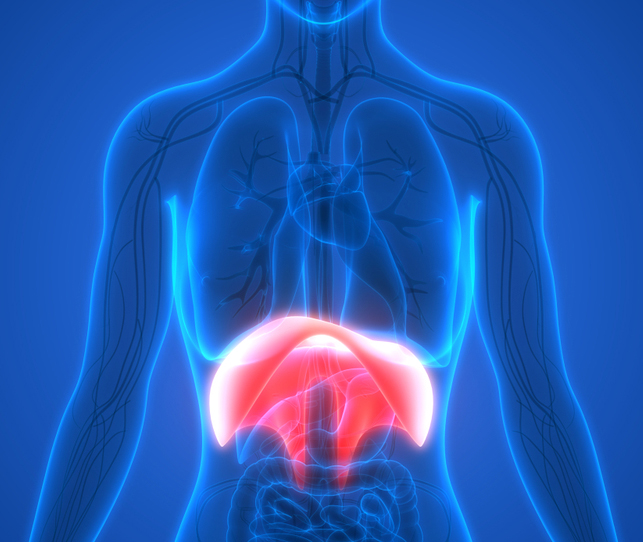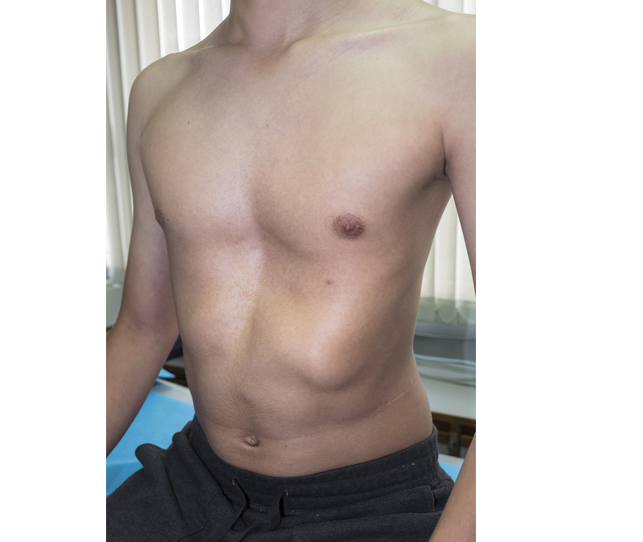Breathing Dysfunction
Breathing issues are a lesser-known but common issue for many people. They may be a primary issue such as a phrenic nerve problem or hemidiaphragm, or a secondary problem such as altered breathing patterns due to scoliosis. The breathing system is intricately related to all body systems including our core muscle function, GI function, nervous system function (flight/fight/freeze state), and vocal production. Our therapists treat a variety of breathing-related issues in kids and adults, including the following:
- Poor breath support for speech
- Poor breath support for movement
- Pectus excavatum
- Phrenic nerve palsy or post-operative repair
- Hemidiaphragm
- Joint and muscle pain
- Chronic pain
- Pelvic floor function
- Back pain
- Scoliosis related breathing dysfunction
- Stress
Improvement in breathing patterns can have profound impacts on all of these issues. Treatments include ribcage and spine mobilization, manual therapy to tight muscles/fascia/scars, retraining and strengthening of the diaphragm and postural muscles, and retraining of breathing patterns. You can read more on the Integral blog.
As said by Mary Massery, the leading physical therapy expert on linking motor behaviors to breathing and/or postural mechanics in both pediatric and adult patient populations, we must determine which body system is the “primary deterrent to optimal motor function and which system is likely a consequence of those interactions.” Sometimes breathing dysfunction develops as a result of other systems and sometimes the breathing dysfunction is what drives other system issues, be they neck pain or pelvic floor dysfunction, or lack of shoulder mobility.
“Despite decades of research BPDs [breathing pattern disorders], together with a range of the resulting pathophysiological biochemical, psychological and biomechanical effects, remain commonly under-recognized by health care professionals as contributing to pain, fatigue and dysfunction in general and lumbopelvic pain and dysfunction, in particular.”
— LEON CHAITOW

Diaphragm Rehab
The diaphragm may be impaired or inactive due to a variety of congenital or acquired illnesses or conditions, or due to injury or lack of use. If the diaphragm is not functioning optimally, there is an effect on a variety of body systems including the core (the diaphragm is the “roof” of the 3-dimensional core and an integral part of its function), the pelvic floor and continence, the digestive system, and voicing among others. Our doctors of physical therapy treat clients of all ages with a variety of diaphragm specific impairments and also incorporates breathing into treatment for every patient because of the amazing impact that breathing has on postural control and function. See this blog post for more information.

Post Phrenic Nerve Repair
The phrenic nerve can be damaged due to injury, infection, surgery, or other means. There are a few specialized surgeons who perform surgery to repair the nerve. One of the best is Dr. Kauffman. Reach out to our team for more information on post-surgical rehabilitation, as we are one of the only providers in the East Cobb, Marietta, and Atlanta areas trained in these techniques.

Pectus Excavatum / Carinatum
Traditional medicine views bracing and/or surgery as the only option for these conditions, but physical therapy can be tremendously helpful in preventing or delaying surgery. Our therapists specialize in orthopedic and respiratory techniques that have been proven to reduce the deformity and improve postural control. We are one of less than a handful of providers in East Cobb, Marietta, and the metro Atlanta area specializing in these techniques and works to train other practitioners. Improvements can be seen in the patient’s strength, endurance, respiratory capacity, vocal ability, core control, posture, performance, and degree of deformity. Our team is also available for rehabilitation of post-operative pectus repairs.

Ribcage Disorders
Physical therapy is an important adjunct to the care of patients with a VEPTR (titanium rib), and associated disorders of the chest, spine, and ribs. Working on flexibility, strength, and 3 dimensional control of breathing is crucial for these kids, even the very young ones. Gentle mobilization of the intercostal muscles, release of tightness, activation of “sleepy” muscles, and retraining the breath can make a tremendous difference for overall postural control and strength. Dr. Shaw is one of very few specialists in the Massery techniques that are recommended for these patients, and one of the only in metro Atlanta, including East Cobb, Marietta, and surrounding areas.
